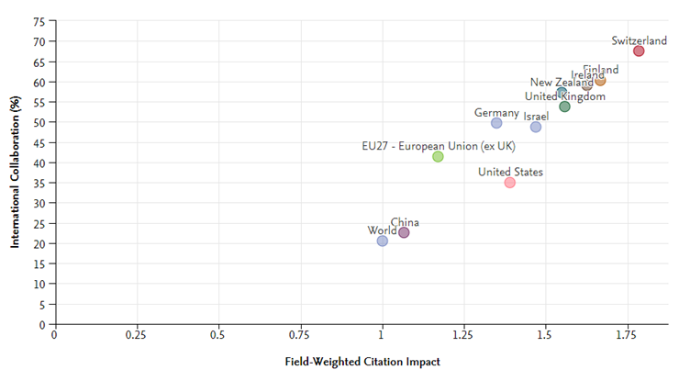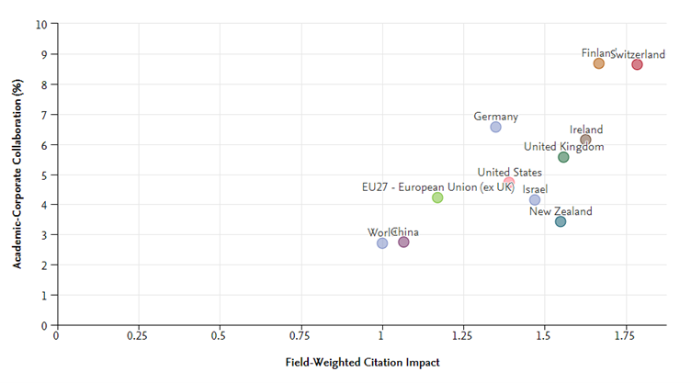Target appropriate journals that are read and respected by everyone in your discipline. You might want to take a look at your own reference list and identify journals that commonly appear.
14% of UCD’s research outputs between 2016 and 2020 were uncited. Publishing in the right place is an important way of mitigating this risk.
It is also worth noting that a study covering (opens in a new window)923 scientific journals found that resubmissions were cited significantly more than first intents, largely due to input from editors and reviewers, and the greater amount of time spent working on resubmissions. This significantly improved the citation impact of the final product.
 Where appropriate for your discipline, publish in open access journals (ensuring they are indexed by Scopus or Web of Science). By making your outputs freely available, you can increase their reach and impact. For more information, read our
Where appropriate for your discipline, publish in open access journals (ensuring they are indexed by Scopus or Web of Science). By making your outputs freely available, you can increase their reach and impact. For more information, read our 

